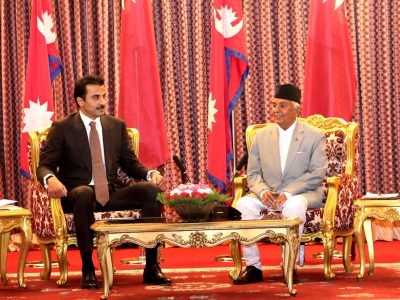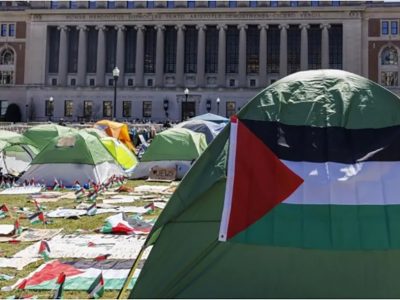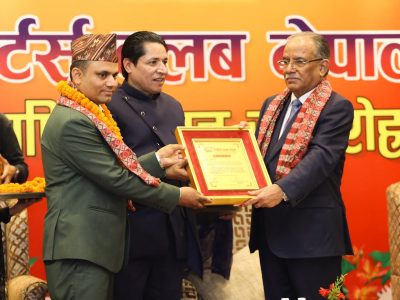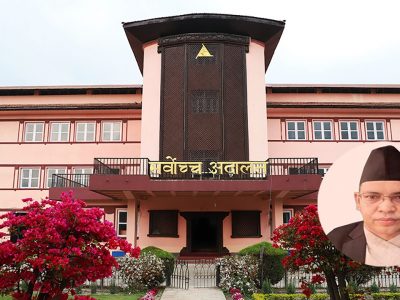Armenian Prime Minister warns of an ‘Attempted Military Coup’
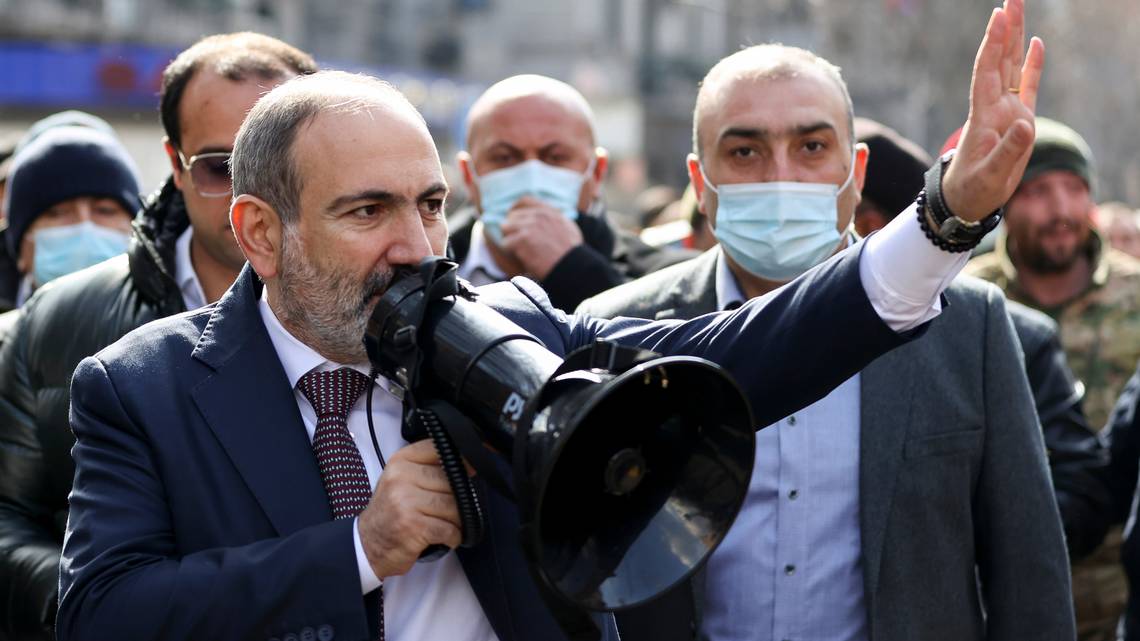
Kathmandu, February 27. Three months after Armenia’s defeat to Azerbaijan over the Nagorno-Karabakh enclave, Armenia is entering a severe situation of political turmoil. The high-ranking military authorities on Thursday called Prime Minister Nikol Pashinyan and his cabinet to submit resignations.
Rejecting the call, PM Pashinyan claimed that the “military is attempting to stage a coup”. His statement stoked thousands of masses in the capital and western states who are staging street demonstrations in support of Pashinyan.
During a protest in Yerevan’s Republic Square, Pashinyan shouted “I became the prime minister, not of my own will, but because people decided so, let people demand my resignation or shoot me in the square.”
Since the ceasefire agreement in November, 17 opposition parties are continuously demanding the ruling party to step down.
What happened this week?
While speaking in a recent interview, Pashiyan said that Armenia had used a few Russian made Iskander missiles during the 44-day long Nagorno-Karabakh war.
When Armenia’s deputy Chief of Army Staff responded that no Iskander missiles were deployed against Azerbaijan, Prime Minister Pashiyan immediately fired the deputy Chief. The incident prompted the Chief of Armed Forces Onik Gasparyan and other 40 high ranking officials to demand the prime minister’s resignation.
Russia also disagreed with the PM’s claim about the deployment of Iskander missiles.
On Friday, the President of Turkey Recep Tayyip Erdogan said that the attempt to bring martial law is “unacceptable” and Turkey is against all types of coup. “If there will be a change in administration, the Armenian people will do that. It should be left to the will of the Armenian people,” noted Erdogan.
Nagorno-Karabakh Conflict
The dispute between Azerbaijan and Armenia over the 1700 square miles of the enclave of Nagorno-Karabakh had begun in 1988 when the Soviet Union was disintegrating and losing its powers. In 1991, a huge war broke out killing more than 30 thousand.
In 1994, Russia resolved the conflict by brokering a cease-fire. Since then and now, the two countries have engaged in wars several times, the most serious escalation was observed in 2016 and recently in September-October 2020.
In 2020, heavy fighting broke out on 27 September. The following six weeks were considered to be the most destructive conflict in its history. By October 8, around 5000 soldiers were already killed, stated by Russia’s President Vladimir Putin.
After several attempts to ceasefire failed, after six weeks of fighting, Russian President Vladimir Putin, the Azerbaijani President, and Armenia’s Prime Minister signed a trilateral agreement for peace in November.
The agreement allowed the deployment of more than 1900 Russian peacekeepers along the Nagorno-Karabakh corridor.
Myanmar Police open fire “rubber bullets” on anti-coup protesters
Facebook Comment
latest Video
Trending News
- This Week
- This Month











